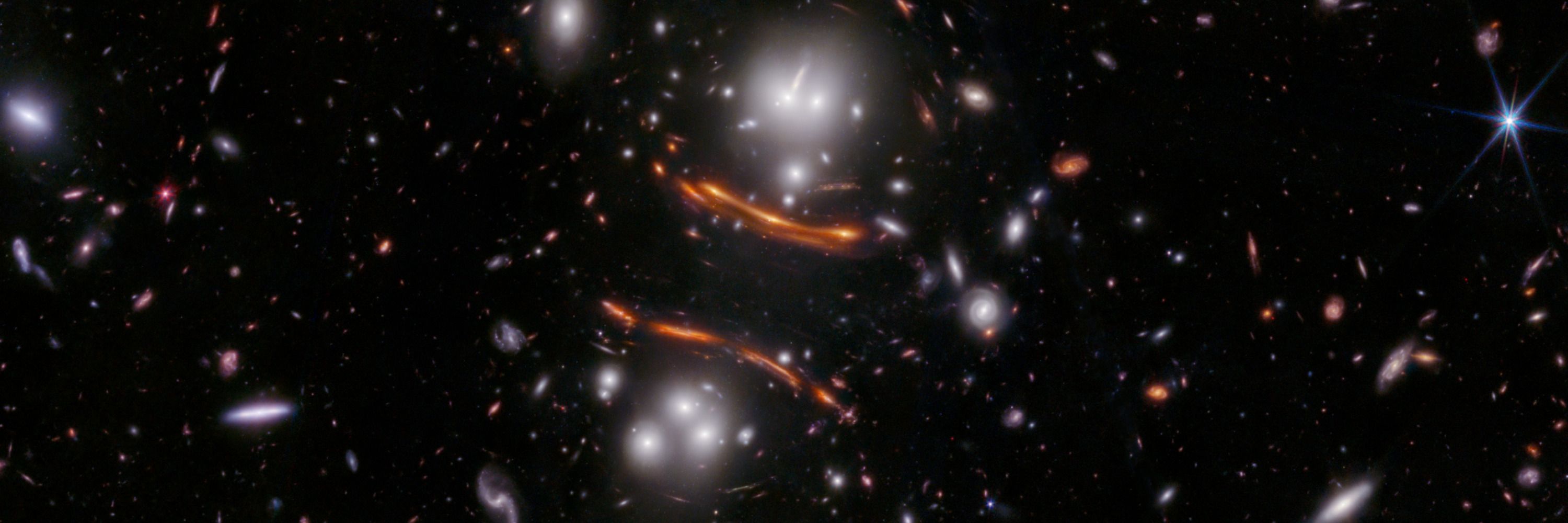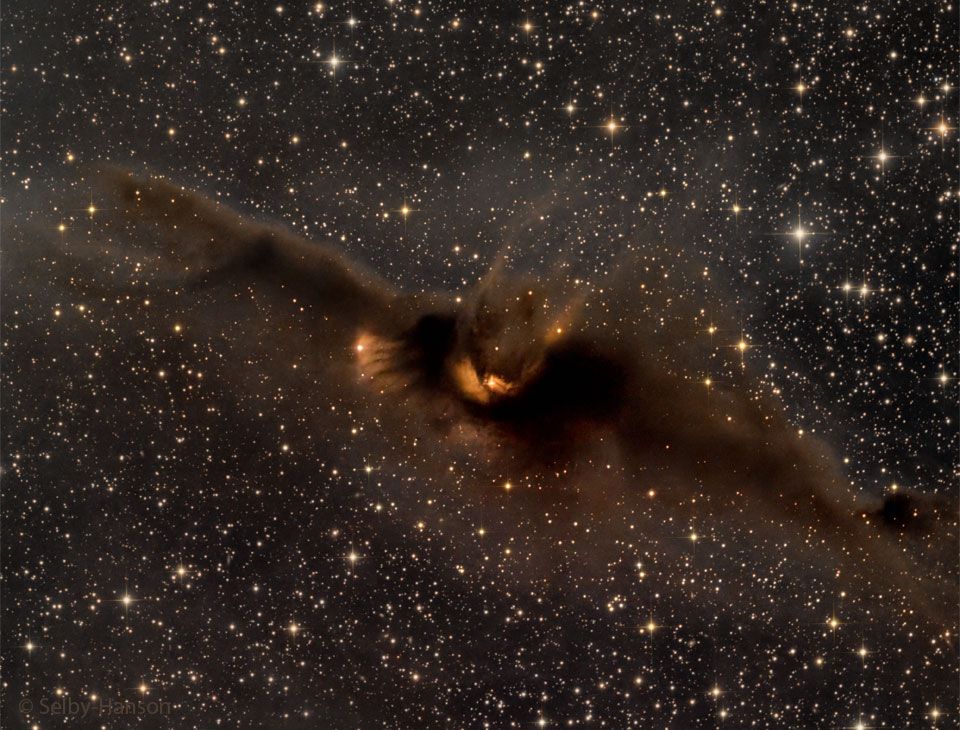
Corey S. Powell
@coreyspowell.bsky.social
Fascinated by things very big, very small, and beyond the limits of the human senses. Founder of OpenMind: www.openmindmag.org Creator of the Invisible Universe column: https://invisibleuniverse.substack.com/
Historians are still decoding the complex calendar system in the Dresden Codex. Who knows what information was in the many other lost Mayan manuscripts.
All of this was done using centuries of carefully recorded, naked eye observations. 🧪
archaeologymag.com/2025/10/maya...
All of this was done using centuries of carefully recorded, naked eye observations. 🧪
archaeologymag.com/2025/10/maya...

November 11, 2025 at 12:55 AM
Historians are still decoding the complex calendar system in the Dresden Codex. Who knows what information was in the many other lost Mayan manuscripts.
All of this was done using centuries of carefully recorded, naked eye observations. 🧪
archaeologymag.com/2025/10/maya...
All of this was done using centuries of carefully recorded, naked eye observations. 🧪
archaeologymag.com/2025/10/maya...
I find this remarkable:
The Dresden Codex, one of the few surviving Mayan manuscripts, contains tables that give highly accurate timings of solar eclipses over more than 700 years, from 350 CE to the 12 century. 🧪🔭
www.science.org/doi/10.1126/...
The Dresden Codex, one of the few surviving Mayan manuscripts, contains tables that give highly accurate timings of solar eclipses over more than 700 years, from 350 CE to the 12 century. 🧪🔭
www.science.org/doi/10.1126/...

November 11, 2025 at 12:49 AM
I find this remarkable:
The Dresden Codex, one of the few surviving Mayan manuscripts, contains tables that give highly accurate timings of solar eclipses over more than 700 years, from 350 CE to the 12 century. 🧪🔭
www.science.org/doi/10.1126/...
The Dresden Codex, one of the few surviving Mayan manuscripts, contains tables that give highly accurate timings of solar eclipses over more than 700 years, from 350 CE to the 12 century. 🧪🔭
www.science.org/doi/10.1126/...
Wishing you all a happy Carl Sagan Day (born this day in 1934).
Fascinating to see his note summarizing the key topics he planned to discuss during his 1977 meeting with President Carter. ("Wonder"!) 🧪🔭
www.loc.gov/collections/...
Fascinating to see his note summarizing the key topics he planned to discuss during his 1977 meeting with President Carter. ("Wonder"!) 🧪🔭
www.loc.gov/collections/...


November 10, 2025 at 2:15 AM
Wishing you all a happy Carl Sagan Day (born this day in 1934).
Fascinating to see his note summarizing the key topics he planned to discuss during his 1977 meeting with President Carter. ("Wonder"!) 🧪🔭
www.loc.gov/collections/...
Fascinating to see his note summarizing the key topics he planned to discuss during his 1977 meeting with President Carter. ("Wonder"!) 🧪🔭
www.loc.gov/collections/...
Here's a comparison between the sky that you can see with your human eyes & the sky seen through the radio eyes of the Murchison Widefield Array in Western Australia. 🧪🔭
www.cambridge.org/core/journal...
www.cambridge.org/core/journal...

November 9, 2025 at 6:23 PM
Here's a comparison between the sky that you can see with your human eyes & the sky seen through the radio eyes of the Murchison Widefield Array in Western Australia. 🧪🔭
www.cambridge.org/core/journal...
www.cambridge.org/core/journal...
This is what the band of the Milky Way would look like at night if your eyes could see radio waves. A hidden beauty.
It's a new image created by the Murchison Widefield Array, which scanned the sky in 20 radio "colors" over frequencies from 72 to 231 megahertz. 🧪🔭
www.icrar.org/gleam-x-gala...
It's a new image created by the Murchison Widefield Array, which scanned the sky in 20 radio "colors" over frequencies from 72 to 231 megahertz. 🧪🔭
www.icrar.org/gleam-x-gala...

November 9, 2025 at 6:19 PM
This is what the band of the Milky Way would look like at night if your eyes could see radio waves. A hidden beauty.
It's a new image created by the Murchison Widefield Array, which scanned the sky in 20 radio "colors" over frequencies from 72 to 231 megahertz. 🧪🔭
www.icrar.org/gleam-x-gala...
It's a new image created by the Murchison Widefield Array, which scanned the sky in 20 radio "colors" over frequencies from 72 to 231 megahertz. 🧪🔭
www.icrar.org/gleam-x-gala...
The Aaron Burr theory of customer service

November 8, 2025 at 8:16 PM
The Aaron Burr theory of customer service

November 8, 2025 at 2:42 PM
Astronomers call this planet a "Tidarren" world. It is probably the remains of a former star that was eroded down to planet size by its cannibalistic companion star. 🧪🔭
scitechdaily.com/jwst-finds-a...
scitechdaily.com/jwst-finds-a...

November 8, 2025 at 2:02 PM
Astronomers call this planet a "Tidarren" world. It is probably the remains of a former star that was eroded down to planet size by its cannibalistic companion star. 🧪🔭
scitechdaily.com/jwst-finds-a...
scitechdaily.com/jwst-finds-a...
Nature makes weird planets, and now this is among the weirdest: As big as Jupiter, made of carbon, blasted by high winds, and heated to 1900 degrees C by a dying, fast-spinning pulsar.
No matter how bad things get here, we live on the best of all possible worlds. 🔭🧪
arxiv.org/abs/2509.04558
No matter how bad things get here, we live on the best of all possible worlds. 🔭🧪
arxiv.org/abs/2509.04558

November 8, 2025 at 1:53 PM
Nature makes weird planets, and now this is among the weirdest: As big as Jupiter, made of carbon, blasted by high winds, and heated to 1900 degrees C by a dying, fast-spinning pulsar.
No matter how bad things get here, we live on the best of all possible worlds. 🔭🧪
arxiv.org/abs/2509.04558
No matter how bad things get here, we live on the best of all possible worlds. 🔭🧪
arxiv.org/abs/2509.04558
Meanwhile on Mars...
The planet is covered with odd gullies that look like they were carved by running water. A cool new experiment demonstrates that they were probably carved by sliding, spitting chunks of dry ice. (Sorry, still no signs of life.) 🧪🔭
www.uu.nl/en/news/myst...
The planet is covered with odd gullies that look like they were carved by running water. A cool new experiment demonstrates that they were probably carved by sliding, spitting chunks of dry ice. (Sorry, still no signs of life.) 🧪🔭
www.uu.nl/en/news/myst...
November 6, 2025 at 11:18 PM
Meanwhile on Mars...
The planet is covered with odd gullies that look like they were carved by running water. A cool new experiment demonstrates that they were probably carved by sliding, spitting chunks of dry ice. (Sorry, still no signs of life.) 🧪🔭
www.uu.nl/en/news/myst...
The planet is covered with odd gullies that look like they were carved by running water. A cool new experiment demonstrates that they were probably carved by sliding, spitting chunks of dry ice. (Sorry, still no signs of life.) 🧪🔭
www.uu.nl/en/news/myst...
This mysterious object, called Capotauro, might be the earliest, most distant galaxy ever seen, containing some of the universe's first stars.
Or it might be a mundane, nearby brown dwarf floating through our Milky Way.
Nobody said cosmology was easy. 🧪🔭
arxiv.org/abs/2509.016...
Or it might be a mundane, nearby brown dwarf floating through our Milky Way.
Nobody said cosmology was easy. 🧪🔭
arxiv.org/abs/2509.016...

November 4, 2025 at 7:21 PM
This mysterious object, called Capotauro, might be the earliest, most distant galaxy ever seen, containing some of the universe's first stars.
Or it might be a mundane, nearby brown dwarf floating through our Milky Way.
Nobody said cosmology was easy. 🧪🔭
arxiv.org/abs/2509.016...
Or it might be a mundane, nearby brown dwarf floating through our Milky Way.
Nobody said cosmology was easy. 🧪🔭
arxiv.org/abs/2509.016...
Finally, there's this iconic image from JWST. Sure, they can call it the "Pillars of Creation," but this is obviously a giant Monkey's Paw that has already curled two fingers. 🧪🔭
esawebb.org/images/pilla...
esawebb.org/images/pilla...

October 31, 2025 at 3:05 PM
Finally, there's this iconic image from JWST. Sure, they can call it the "Pillars of Creation," but this is obviously a giant Monkey's Paw that has already curled two fingers. 🧪🔭
esawebb.org/images/pilla...
esawebb.org/images/pilla...
A particularly weird one: The Flying Bat Nebula has the Squid Nebula inside of it.
Is the bat carrying a squid? Did it swallow a squid whole? Somebody needs to work out the mythology here.
www.nebulaphotos.com/sharpless/sh...
Is the bat carrying a squid? Did it swallow a squid whole? Somebody needs to work out the mythology here.
www.nebulaphotos.com/sharpless/sh...

October 31, 2025 at 2:56 PM
A particularly weird one: The Flying Bat Nebula has the Squid Nebula inside of it.
Is the bat carrying a squid? Did it swallow a squid whole? Somebody needs to work out the mythology here.
www.nebulaphotos.com/sharpless/sh...
Is the bat carrying a squid? Did it swallow a squid whole? Somebody needs to work out the mythology here.
www.nebulaphotos.com/sharpless/sh...
The Bat Signal Nebula, just released by the European Southern Observatory.
www.eso.org/public/news/...
www.eso.org/public/news/...

October 31, 2025 at 2:52 PM
The Bat Signal Nebula, just released by the European Southern Observatory.
www.eso.org/public/news/...
www.eso.org/public/news/...
The Goblin Nebula, imaged by father-son duo of Bill & Chad Williams.
www.williamsseaandsky.com?page_id=2324
www.williamsseaandsky.com?page_id=2324

October 31, 2025 at 2:51 PM
The Goblin Nebula, imaged by father-son duo of Bill & Chad Williams.
www.williamsseaandsky.com?page_id=2324
www.williamsseaandsky.com?page_id=2324

October 31, 2025 at 2:48 PM

October 31, 2025 at 2:46 PM
Astronomers sure do conjure up a lot of spooky images when they look out into deep space. A short Halloween thread:
Let's start with the Cosmic Bat Nebula (LDN 43). 🧪🔭
apod.nasa.gov/apod/ap24102...
Let's start with the Cosmic Bat Nebula (LDN 43). 🧪🔭
apod.nasa.gov/apod/ap24102...

October 31, 2025 at 2:44 PM
Astronomers sure do conjure up a lot of spooky images when they look out into deep space. A short Halloween thread:
Let's start with the Cosmic Bat Nebula (LDN 43). 🧪🔭
apod.nasa.gov/apod/ap24102...
Let's start with the Cosmic Bat Nebula (LDN 43). 🧪🔭
apod.nasa.gov/apod/ap24102...
Fascinating graph shows the estimated total mass of all the mammals living on Earth.
In 1850, it was evenly divided between wildlife and humans + domesticated animals. Today, humans and their livestock account for about 95% of the total. 🧪
www.nature.com/articles/s41...
In 1850, it was evenly divided between wildlife and humans + domesticated animals. Today, humans and their livestock account for about 95% of the total. 🧪
www.nature.com/articles/s41...

October 30, 2025 at 1:58 PM
Fascinating graph shows the estimated total mass of all the mammals living on Earth.
In 1850, it was evenly divided between wildlife and humans + domesticated animals. Today, humans and their livestock account for about 95% of the total. 🧪
www.nature.com/articles/s41...
In 1850, it was evenly divided between wildlife and humans + domesticated animals. Today, humans and their livestock account for about 95% of the total. 🧪
www.nature.com/articles/s41...
Many objects in space have obscure names (HD 219134b) or unhelpful classical names (try to find the dog of Canis Minor, I dare you).
But the Red Spider Nebula really looks like a spider in space--the breath of an old, dying star caught in a web of interstellar gas. 🧪🔭
esawebb.org/images/potm2...
But the Red Spider Nebula really looks like a spider in space--the breath of an old, dying star caught in a web of interstellar gas. 🧪🔭
esawebb.org/images/potm2...

October 29, 2025 at 4:17 PM
Many objects in space have obscure names (HD 219134b) or unhelpful classical names (try to find the dog of Canis Minor, I dare you).
But the Red Spider Nebula really looks like a spider in space--the breath of an old, dying star caught in a web of interstellar gas. 🧪🔭
esawebb.org/images/potm2...
But the Red Spider Nebula really looks like a spider in space--the breath of an old, dying star caught in a web of interstellar gas. 🧪🔭
esawebb.org/images/potm2...
Apparently you can buy a shark rocket for less than $15, which strikes me as a pretty good deal

October 29, 2025 at 4:09 PM
Apparently you can buy a shark rocket for less than $15, which strikes me as a pretty good deal
Spectacular time-lapse image of Comet Lemmon (C/2025 A6), taken by astrophotographer Michael Jäger.
There might have been, um, a few satellites passing by during the long exposure. 🧪🔭
forum.vdsastro.de/viewtopic.ph...
There might have been, um, a few satellites passing by during the long exposure. 🧪🔭
forum.vdsastro.de/viewtopic.ph...
October 28, 2025 at 7:31 PM
Spectacular time-lapse image of Comet Lemmon (C/2025 A6), taken by astrophotographer Michael Jäger.
There might have been, um, a few satellites passing by during the long exposure. 🧪🔭
forum.vdsastro.de/viewtopic.ph...
There might have been, um, a few satellites passing by during the long exposure. 🧪🔭
forum.vdsastro.de/viewtopic.ph...
More space beauty for your day: This new JWST image of Uranus shows exquisite detail in the rings, clouds, and huge polar cap. Imagine what it took to knock this planet on its side.
Processing by Andrea Luck. 🔭🧪
www.flickr.com/photos/19227...
Processing by Andrea Luck. 🔭🧪
www.flickr.com/photos/19227...

October 28, 2025 at 11:54 AM
More space beauty for your day: This new JWST image of Uranus shows exquisite detail in the rings, clouds, and huge polar cap. Imagine what it took to knock this planet on its side.
Processing by Andrea Luck. 🔭🧪
www.flickr.com/photos/19227...
Processing by Andrea Luck. 🔭🧪
www.flickr.com/photos/19227...
What a strange, beautiful shot of Comet Lemmon, now passing through the northwest sky after sunset.
Here you see 2 comet tails (gas and dust), plus the unrelated zigzag trail of a passing meteor. And, inevitably, a couple satellite trails, too. 🧪🔭
star.ucl.ac.uk/~apod/apod/a...
Here you see 2 comet tails (gas and dust), plus the unrelated zigzag trail of a passing meteor. And, inevitably, a couple satellite trails, too. 🧪🔭
star.ucl.ac.uk/~apod/apod/a...

October 28, 2025 at 11:38 AM
What a strange, beautiful shot of Comet Lemmon, now passing through the northwest sky after sunset.
Here you see 2 comet tails (gas and dust), plus the unrelated zigzag trail of a passing meteor. And, inevitably, a couple satellite trails, too. 🧪🔭
star.ucl.ac.uk/~apod/apod/a...
Here you see 2 comet tails (gas and dust), plus the unrelated zigzag trail of a passing meteor. And, inevitably, a couple satellite trails, too. 🧪🔭
star.ucl.ac.uk/~apod/apod/a...
Early results from Chang'e-6 indicate late-period volcanism on the Moon & deepen the mystery of why the Moon's farside looks so different from the side we see.
The Chinese lander also gathered a beautiful & intriguing collection of impact glass beads from the Moon. 🧪
news.agu.org/10-23-2025-g...
The Chinese lander also gathered a beautiful & intriguing collection of impact glass beads from the Moon. 🧪
news.agu.org/10-23-2025-g...

October 27, 2025 at 3:36 PM
Early results from Chang'e-6 indicate late-period volcanism on the Moon & deepen the mystery of why the Moon's farside looks so different from the side we see.
The Chinese lander also gathered a beautiful & intriguing collection of impact glass beads from the Moon. 🧪
news.agu.org/10-23-2025-g...
The Chinese lander also gathered a beautiful & intriguing collection of impact glass beads from the Moon. 🧪
news.agu.org/10-23-2025-g...

